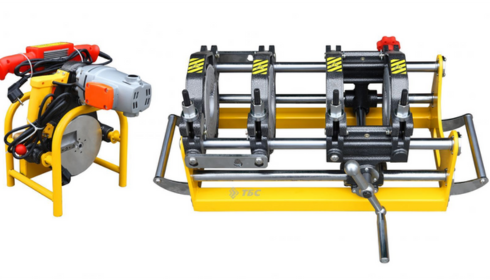Artificial Intelligence is the simulation of human intelligence in machines that are programmed to think, learn, and problem-solve. AI incorporates a range of technologies, from machine learning, natural language processing, and robotics.
How is AI changing the job market? AI is both creating new jobs and automating human tasks. As some jobs are being displaced by AI and automation, others are emerging in the fields of AI development, data science, and robot maintenance.
Will AI replace human jobs? AI has the potential to automate certain tasks, especially those that are repetitive, manual, or routine. However, AI is unlikely to replace all human jobs. Many jobs will evolve, with humans working alongside AI, leveraging it for more creative or complex tasks.
Which industries are most affected by AI? The most affected industries include:
Manufacturing: Automation of repetitive production tasks.
Health: AI-assisted diagnostics and treatments, backroom administrative jobs
Finance: Automated trades, automated risk assessments, automated customer support services
Retail: Inventory management through AI, sales forecasts through AI
Transport: Driverless automobiles and path optimization. Which industries face a serious risk from job automation?
Tasks involving repetitions can easily be targeted and eliminated; they include data entry clerks, assembly-line employees, customers with regular enquiries to a contact centre, taxi or cab drivers because of autonomous driving, and telemarketing services
What new jobs are emerging as a result of AI? While AI and machine learning technology progresses, new jobs are emerging as well in fields such as:
AI/ML specialist
Data scientist and analyst
Robot maintenance technician
AI ethics consultant
AI training data curator
AI systems cybersecurity expert
How will AI affect white-collar jobs? AI will change white-collar jobs by automating administrative tasks, data analysis, and even some aspects of decision-making. For instance, AI tools can help in financial forecasting, legal research, and medical diagnostics. Professionals may need to upskill to work alongside AI and focus on tasks requiring human judgment and creativity.
What skills are essential for future jobs with AI integration? The essential skills include:
Technical skills: Programming, machine learning, data analysis, and AI-specific knowledge.
Soft skills: Creativity, problem-solving, critical thinking, and emotional intelligence.
Adaptability: The ability to learn new technologies and methodologies.
Ethical understanding: Knowledge of AI ethics and its societal impacts.
How is AI changing the gig economy? AI is helping the gig economy by improving the matching algorithms, making the hiring process easier, and creating more flexible work opportunities. Platforms can connect freelancers to projects based on their skills and preferences more efficiently through AI.
Will AI contribute to job polarization? Yes, AI may also contribute to the job polarization: high-skill, high-wage jobs (e.g., the AI engineers), and low-skill, low-wage jobs such as manual labor or basic customer service. Such middle-wage jobs, which are also routine and predictable, are particularly at risk of becoming automated.
How is AI impacting wages at work? AI could lead to wage disparity. High-skill jobs, particularly in tech, may see a rise in wages due to an increased demand for AI-related expertise. However, jobs at risk of automation may see stagnant or declining wages because of reduced demand and labor market shifts.
What is the role of AI in workforce productivity? AI can make a significant increase in workforce productivity by automating repetitive tasks, enhancing decision making with data insights, and allowing employees to focus on more valuable tasks that include strategic planning or creative work.
AI-driven talent management refers to the application of AI technologies to enhance human resources processes such as recruitment, performance reviews, and workforce planning. AI can help identify high-potential candidates, streamline hiring, and offer personalized learning and development opportunities.
How can AI improve job training and reskilling? AI can improve training programs by offering personalized learning experiences, tracking progress, and adapting content to suit individual needs. AI-driven tools can also identify skill gaps and provide targeted resources for employees to reskill and adapt to new roles.
How will AI impact job tenure and job security? Job tenures and job security will rely on the ability to adapt to the changes brought by AI. Workers who continually develop their skills in line with shifting technologies will have greater job security, while employees in jobs most susceptible to automation may lose jobs or experience job insecurity.
Are AI and automation causing unemployment? While AI and automation can displace certain jobs, they also create new opportunities in emerging fields. The key challenge lies in helping workers transition to new roles and industries through retraining and reskilling programs, so AI’s impact on unemployment can be mitigated.
How can businesses prepare their workforce for AI integration? Businesses can prepare their workforce by:
Continuous learning and development.
Promote the culture of adaptation and innovation.
Invest in reskilling the employees to prepare them for their new roles.
Encourage cooperation between AI and human workers.
Will AI expand remote work options? Yes, AI will support remote work with better communication, cooperation, and management of projects. AI tools such as chatbots, virtual assistants, and collaborative tools will make it easier to complete remote work by reducing the processing time and thus increasing productivity as a whole.
How does the presence of AI affect decision making in organizations? AI can also help organizations develop data-driven choices by analyzing voluminous datasets with insights that perhaps human decision-making might miss, improving efficiency and accuracy and a higher speed about areas such as forecasting, allocation of resources and strategic planning.
What is the role of AI in HR and recruitment? AI is revolutionizing HR by automating candidate screening, enhancing recruitment processes, and helping with employee engagement. AI tools can analyze resumes, assess candidates’ skills, and predict job performance, reducing the time and cost of recruitment.
It can consequently improve employee wellness and job satisfaction in the following ways: AI can track work-life balance, workload, and stress levels for employees through the analysis of data. Through this, organizations can support their workforce better. Hence, AI-powered tools can easily offer customized wellness programs and career growth tracks.
This is the question about whether AI will reduce the necessity of human creativity in the workplace. Yes and no-that’s basically the answer. AI can help with repetitive tasks, improve data-based decision making, and yet still fundamentally be part of our workplaces because, at the end of the day, AI just cannot fully replace human creativity.
How is AI changing jobs in the healthcare industry? AI is transforming healthcare by assisting with diagnostics, personalized treatment plans, administrative tasks, and drug discovery. AI can automate certain medical tasks, but it still requires human oversight, and the demand for healthcare professionals with AI expertise is growing.
How will AI change jobs in the legal field? AI is streamlining legal research, document review, and contract analysis. Legal professionals can leverage AI tools to improve efficiency in these tasks, allowing them to focus more on strategy, client counseling, and court representation.
AI is used in customer service jobs through AI-powered chatbots and virtual assistants, which are transforming customer service by handling routine inquiries, processing transactions, and offering 24/7 support. Although this reduces the demand for traditional customer service roles, it also opens up new opportunities for workers in AI system management and oversight.
Will AI create more high-paying or low-paying jobs? AI is likely to create both high-paying and low-paying jobs, but the higher-paying jobs will be more concentrated in technical fields such as AI development, data science, and cybersecurity. The demand for skilled workers in these areas will likely lead to higher wages.
How can businesses ensure a smooth transition to AI-driven workplaces? Businesses can facilitate a smooth transition by:
Training and reskilling programs for employees
Transparency in the implementation of AI systems
Creating a culture of collaboration between AI systems and human workers
Supporting workers whose jobs are displaced by automation.
What is the ethical impact of AI on the job market? The ethical impact of AI on the job market includes job displacement, wage inequality, and the possibility of bias in AI algorithms. To reduce the negative impact, there is a need to ensure fair AI practices, provide reskilling opportunities, and address the social implications of AI.
How does AI affect job roles in the creative industries? In the creative industries, AI is used to assist in tasks like design, content generation, and video editing. While AI can help automate routine tasks, human creativity, intuition, and emotional intelligence remain essential in producing original, impactful work.
Will labor unions be more active? As the worker population becomes more assertive, demanding better protection, job security, and compensation in an AI economy, the role of labor unions will be influenced by AI. Reskilling programs, job retraining, and standards for ethics in AI application will likely be pushed for by unions.
How will AI impact the construction industry? AI is changing the construction industry by automating project management, improving safety through predictive analytics, and optimizing building design. AI can increase efficiency, but workers will require new skills to work with AI-enabled technologies and equipment.
What is AI’s role in personalized job recommendations? AI can improve job matching by analyzing individuals’ skills, experiences, and preferences to recommend tailored job opportunities. AI algorithms can help candidates find roles that better suit their profiles, increasing the efficiency of the recruitment process.
Yes, AI may increase job competition because the workforce has to adapt to the changing nature of the job market. While AI creates new opportunities, it may require workers to acquire new skills, leading to more competition for high-skill jobs in fields like data science, programming, and AI development.
Can AI help in solving labor shortages in some industries? AI can help in solving labor shortages by automating tasks that would otherwise require human labor, such as inventory management, logistics, and certain manufacturing processes. This reduces the strain on industries facing worker shortages, such as healthcare and agriculture.
How does AI contribute to work-life balance? AI can improve work-life balance by automating time-consuming tasks and providing employees with tools for efficient time management. Virtual assistants, scheduling tools, and AI-driven productivity apps can help employees manage workloads and prioritize their personal time.
What is the role of AI in the finance and accounting sector? In finance and accounting, AI is used for fraud detection, financial forecasting, risk assessment, and process automation. These tools help professionals focus on higher-level decision-making and strategy while AI handles repetitive, data-driven tasks.
With AI, more opportunities will develop through entrepreneurship. Barriers of entry into entrepreneurship have dropped through AI tools that auto- process activities and enhance targeting customers and streamlined business operations. With AI, entrepreneurs will use it in marketing and product development, and service provision, hence, they can start companies with minimal capital.
Global Job Markets Effect by AI
Depending on regions, AI may cause different changes to global job markets. Developing countries with proper infrastructures are going to observe job creation and even more related to AI, technology sectors, in addition to advanced economies. Otherwise, developing nations with less advance infrastructure, where technological developments are under a manual skillset, job loss is foreseen.
What role do governments play in AI’s impact on the job market? Governments can play a vital role by promoting policies that encourage reskilling, ensuring the ethical development of AI, providing safety nets for displaced workers, and fostering collaboration between industries, educational institutions, and workers to address the challenges posed by AI.
How can individuals stay relevant in an AI-driven job market? To stay relevant, individuals should continuously invest in learning new skills, particularly in areas like AI, machine learning, data analysis, and digital literacy. Emphasizing creativity, emotional intelligence, and problem-solving abilities can also provide a competitive edge in an AI-driven economy.
Conclusion:
AI is changing the job market in profound ways, displacing some jobs but creating others. While some job categories are being disrupted by automation, new and emerging fields in AI, data science, and technology continue to grow. The key challenge will be ensuring that workers have access to the necessary skills and support to navigate this rapidly changing landscape.




